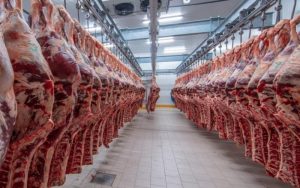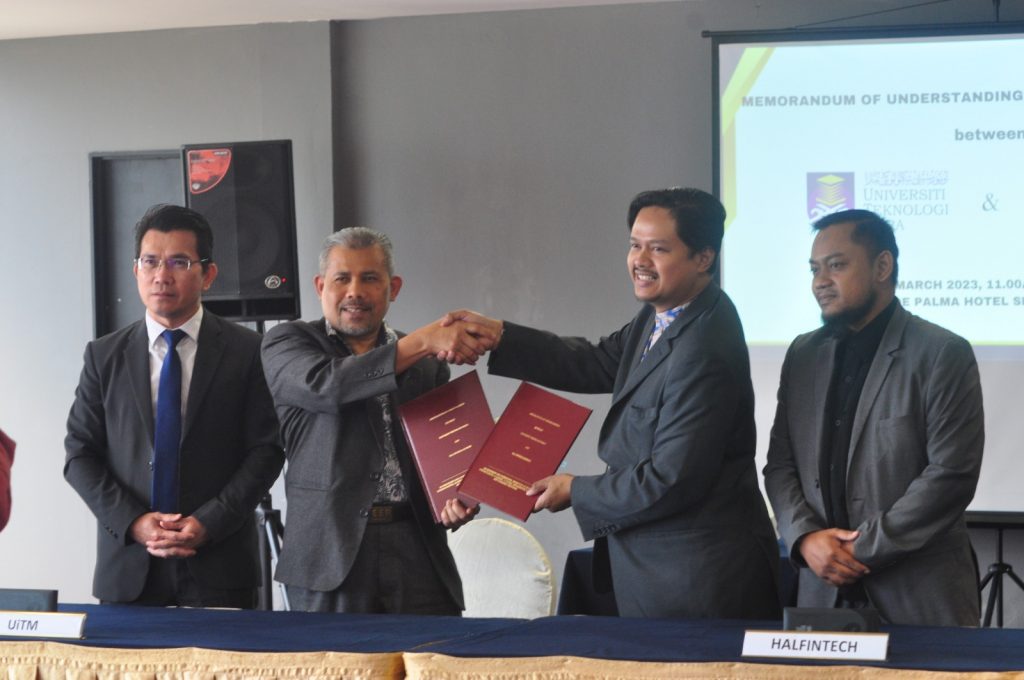By Sara Sayed
US companies are now s tarting to take notice of the monumental opportunities to expand their markets to the Middle East and South East Asia. This is partially due to a recent interest in emerging economies by marketing firms, and the resulting market research.
tarting to take notice of the monumental opportunities to expand their markets to the Middle East and South East Asia. This is partially due to a recent interest in emerging economies by marketing firms, and the resulting market research.
The research showing growing economies with large populations demanding higher-end US products has stimulated interest in market expansion to these regions. According to David Smith, in his study “Global Futures and Foresights, Major Market Trends of 2011”, Muslims represent 23% of the global population today, and this figure will increase to 26% by 2030. Currently, Muslims account for 2.7 trillion dollars in global trade, and conservative estimates expect this figure to triple by 2030.
In the Middle East, for example, Midamar has witnessed exponential growth in the market for Halal foods over the past 40 years – particularly in the past decade. Increasing population growth, migration and the development of the food services sectors in Arabian Gulf countries have led to a demand for high-end USDA approved Halal protein products.
To quote from the US Department of Agriculture’s (USDA) Gain report on the retail sector in the UAE:
“The UAE enjoys a modern, diverse and growing retail food sector. The emergence of hypermarkets in recent years has led to a number of new players in the large store market. An estimated 90 percent of food is imported and prices are relatively high given transportation costs and exchange rate fluctuations. After several years of rapid growth, retail food sales slowed during the early part of 2009 as global economic conditions worsened, but many retailers report that sales have begun to rebound. In the absence of official data, major retailers estimate the annual value of the UAE retail market at $5 billion and the expected annual growth in retail sales at 10-15 percent.”
The same statement, with minor modifications could apply to other GCC countries, including Saudi Arabia, Bahrain, Kuwait, Qatar and Oman. For years, popular American based dining establishments have been locating in Middle Eastern countries with great success. As a result, Middle Easterners began to develop a taste for US beef cuts of all grades as well as turkey, deli meats and more.
Midamar began exporting Halal foods to the Middle East and South East Asia in 1974, and is the first food company in the USA to coordinate with USDA in the development of Halal standards and processes in USDA inspected and approved processing facilities. Since then, Midamar has become a globally recognized Halal Brand and leading exporter of USA produced Halal protein products.
Relative to European countries, the USA is still more insulated from the global economy. However, exporting has become an increasingly important driver of job creation and better paying jobs. US Commerce Department Statistics show that exports represent about 11 percent of US GDP but they account for over 35% of economic growth. Approximately 12 million American jobs depend on international trade and export expansion. This number is increasing annually.
According to the official Whitehouse site, www.whitehouse.gov, in 2010 the Obama Administration launched the National Export Initiative, whereby the President set the ambitious goal of doubling US exports while supporting millions of new jobs over five years. Exports have been growing at an annualized rate of 16.3% when compared with 2009, a pace greater than the 15% required to double exports by the end of 2014.
The Administration’s goal is to ensure US businesses, farmers, ranchers, and workers are able to compete and win in world markets where intellectual property is protected, where agricultural and industrial standards are based on science, and where transparent rules and regulations enhance export development. This has created a supportive environment for US businesses to pursue international trade opportunities.
As markets grow and develop, so do consumer tastes and preferences, this is particularly true of the food and hospitality markets. Most recently, consumers world-wide have been demanding a more stringent degree of Halal oversight, as well as confirmation that animals are raised and harvested humanely.
“Midamar is a Halal food company…we see ourselves as more than a company that has recently decided to sell Halal food in pursuit of rapidly expanding market opportunities,” explains Jalel Aossey. “Over the years we have supplied protein products to Middle Eastern and South East Asian markets and have needed to adjust to the growth and development of these markets.”
Along with the opportunities, there are risks and complexities when engaging in international trade, particularly in the food export sector. This can be seen in the recent ban on US Beef products by the Saudi Food and Drug Administration (SFDA). The ban is a result of a case of ‘Mad Cow’ disease found in California. According to the USDA Foreign Agricultural Service, the SFDA has indicated its willingness to lift the temporary ban on US beef and beef products in accordance with its standard procedure for lifting bans imposed on imports of meat and meat products. The standard procedure includes sending SFDA food safety experts to the US to inspect and approve US beef producing facilities that will be allowed to export beef to Saudi Arabia
“Of course Midamar has been affected by the SFDA temporary ban on US beef. Exporting frozen beef products is very capital intensive and there is an element of risk that unfortunately plays out in these circumstances. That being said, the SFDA will conduct an investigation that will take some time. Once the Saudi authorities have completed their research and their confidence in the quality and safety of US beef products is restored, Midamar will be ready to resume supply of premium quality Midwestern Halal beef products to Saudi Arabia. ” explained Aossey.
When exporting abroad, companies must account for risk in the political and economic environment of each market. There are variables that companies have no control over, like for example currency issues, domestic unrest, political relations and unforeseen events.
“Halal food companies in the USA must be vigilant in setting standards that minimize risk to the food supply. Rather than rely on regulators, as an industry we need to ensure that the food supply chain is healthy in order to prevent problems before they arise,” added Aossey.
One way to ensure a healthy and stable food supply is to adhere to Islamic principles in everyday business operations. This includes, raising animals in humane environments, transporting animals humanely, properly restraining animals, and harvesting by trained Muslim slaughter-men using sharp tools.
The best research to date on humane slaughter has been done by Temple Grandin, a renowned animal rights scholar in the USA. On her website, www.grandin.com, Dr. Grandin summarizes several decades of research. She states that there is very little difference between Halal and Kosher slaughter techniques. In any country there needs to be awareness of humane techniques and willingness on the part of those who perform the slaughter to adopt humane practices, and to hone the skills of their craft.
There also needs to be some oversight by governmental and non-governmental organizations. You may find inhumane practices by some Muslim slaughter men in developing countries – it is very likely that slaughter men of other faiths are also adopting inhumane practices due to a lack of education and oversight in the same countries. Similarly in the USA, Temple Grandin’s research shows that 50% of (non Muslim) slaughterhouses still have what she considers “inhumane practices”.
In the course of her research with cattle, Dr Grandin has observed that if the handling and restraining are carried out according to her guidelines, calm animals show “little or no reaction to the throat cut…it appears that the animal is not aware that its throat has been cut.”
The Halal industry could be at the forefront of the animal welfare movement, setting new benchmarks for responsible and considerate treatment of animals, and further enhancing the value of Halal produce.
“Humane treatment of animals is not only good for the animals, but for the health of the entire food supply. It leads to healthier animals and better quality meat and poultry. And it is an integral part of the Halal food supply. By adhering to Halal standards, we as an industry can do our part to ensure that protein products are safe and healthy to consume,” added Aossey.
While there are tremendous opportunities for growth in international Halal markets, consumers and governments are becoming more conscious and aware of how processes affect the health and welfare of animals and the people who consume protein products. The Halal industry must set the standard for producing the highest quality and safest protein products available. It is not enough to wait for regulators to enforce rules. It is up to Halal food producers to set the standards.
……………………
Reproduced from HalalConnect #4



